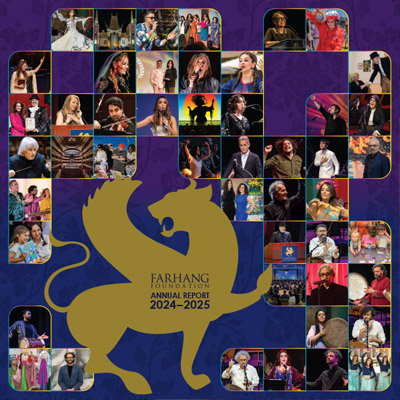2010 Farhang Lifetime Achievement Award - Dr. Amin Banani
2010 Farhang Lifetime Achievement Award Honoree
Dr. Amin Banani

Dr. Amin Banani, esteemed recipient of the 2010 Farhang Lifetime Achievement Award, is celebrated as Emeritus Professor of History and Persian Literature at the University of California, Los Angeles (UCLA). With a distinguished career spanning decades, he has held pivotal roles including Chairman of the Department of Near Eastern Languages and Cultures and Acting Director of the Center for Near Eastern Studies at UCLA.
Dr. Banani's academic journey began with a BA from Stanford University in 1947, followed by an MA from Columbia University in 1949, and culminating in a PhD from Stanford in 1959. His scholarly contributions extend far beyond the classroom, as evidenced by his service on the Board of Directors of the Middle East Studies Association of North America and the Executive Council of the Society for Iranian Studies. He also served as Vice President of the American Association of Iranian Studies, demonstrating his leadership and dedication to advancing the field of Iranian studies globally.
A unique aspect of Dr. Banani's scholarship is his interdisciplinary approach, seamlessly blending history and poetry in both his research and teaching endeavors. His profound appreciation for music, encompassing both Eastern and Western traditions, further enriches his scholarly repertoire and personal interests.
Dr. Banani's impact extends beyond academia, resonating through his mentorship of countless students and his advocacy for a deeper understanding of Persian literature and culture. His contributions have shaped the study of Iranian history and literature, inspiring generations of scholars to explore the rich tapestry of Persian intellectual heritage.
Farhang Foundation's recognition of Dr. Amin Banani with the Lifetime Achievement Award celebrates his profound influence on Iranian studies and his enduring commitment to bridging cultures through scholarship and education. His legacy continues to inspire new avenues of exploration and appreciation for the interconnectedness of history, literature, and music in shaping our understanding of Iranian culture.





